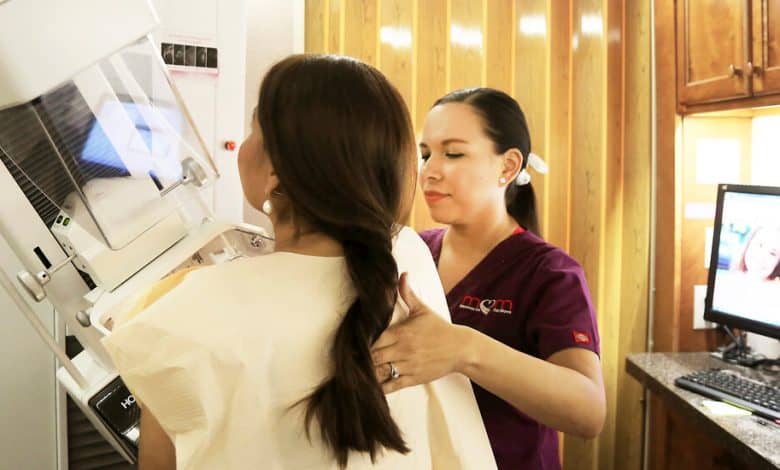Cancer Deaths Are Falling, but There May Be an Asterisk

The news
Cancer deaths in the United States are falling, with four million deaths prevented since 1991, according to the American Cancer Society’s annual report.
At the same time, the society reported that the number of new cancer cases had ticked up to more than two million in 2023, from 1.9 million in 2022. Cancer remains the second leading cause of death in the United States, after heart disease. Doctors believe that it is urgent to understand changes in the death rate, as well as changes in cancer diagnoses.

Breast cancer mortality is one area where treatment has had a significant impact. Credit…Miguel Roberts/The Brownsville Herald, via Associated Press
Background: Treatment improvements help reduce cancer deaths.
The cancer society highlighted three chief factors in reduced cancer deaths: declines in smoking, early detection and greatly improved treatments.
Breast cancer mortality is one area where treatment had a significant impact.
In the 1980s and 1990s, metastatic breast cancer “was regarded as a death sentence,” said Donald Berry, a statistician at the University of Texas MD Anderson Cancer Center and an author of a new paper on breast cancer with Sylvia K. Plevritis of Stanford University and other researchers (several authors of the paper reported receiving payments from companies involved in cancer therapies).
The paper, published Tuesday in JAMA, found that the death rate from breast cancer had fallen to 27 per 100,000 women in 2019 from 48 per 100,000 in 1975. That includes metastatic cancer, which counted for nearly 30 percent of the reduction in the breast cancer death rate.
Breast cancer treatment has improved so much that it has become a bigger factor than screening in saving lives, said Ruth Etzioni, a biostatistician at the Fred Hutchinson Cancer Center.
Death rates have even declined among women in their 40s, who generally did not have regular mammograms, said Dr. Mette Kalager, a professor of medicine at the University of Oslo and Oslo University Hospital, “indicating a substantial effect of treatment,” she said.
“The biggest untold story in breast cancer is how much treatment has improved,” said Dr. H. Gilbert Welch, a cancer epidemiologist at Brigham and Women’s Hospital. “This is unambiguous good news.”
What We Don’t Know: The cause of new cancer cases.
We are having trouble retrieving the article content.
Please enable JavaScript in your browser settings.
Thank you for your patience while we verify access. If you are in Reader mode please exit and log into your Times account, or subscribe for all of The Times.
Thank you for your patience while we verify access.
Already a subscriber? Log in.
Want all of The Times? Subscribe.